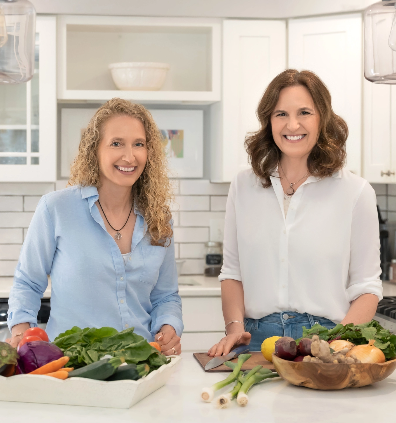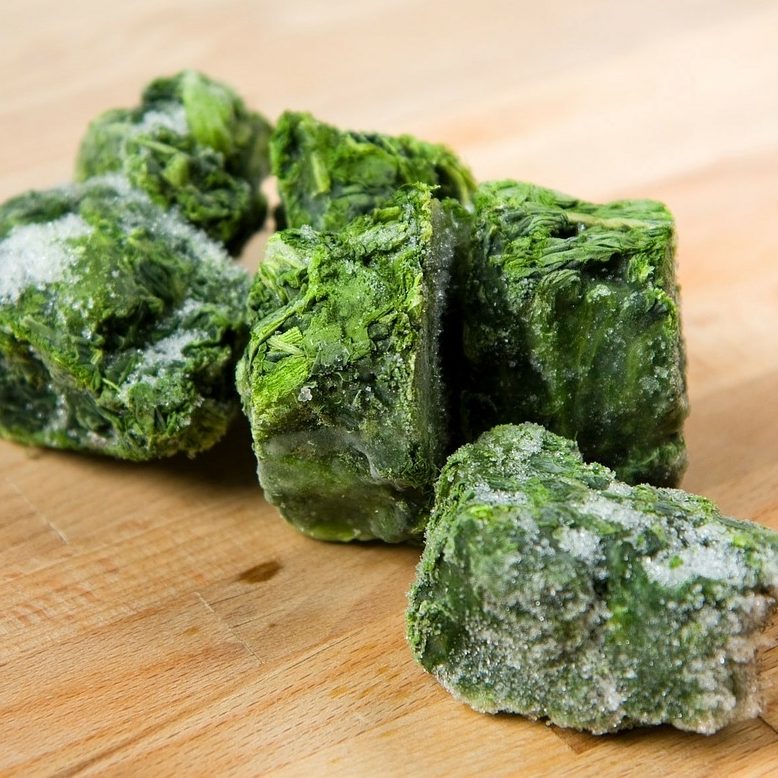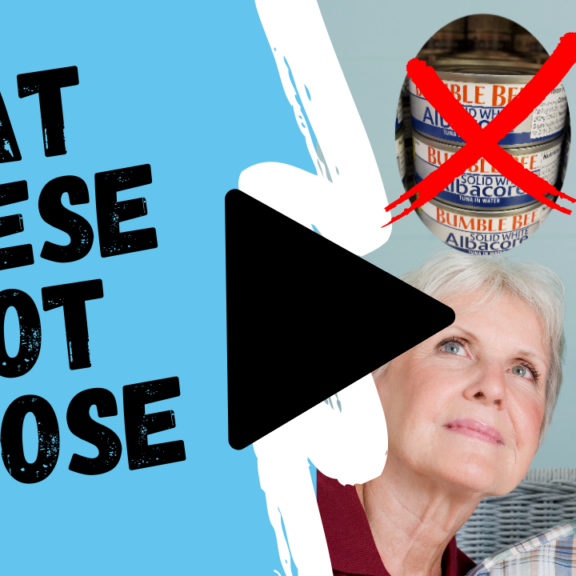Our Top Nutrients (and more) For Breast Health
Aside from skin cancer, breast cancer is the most common cancer among American women. While there are age and genetic factors that are not under our control, there are still plenty of lifestyle habits than can help reduce a woman (or mans) risk of developing breast cancer.
In fact, statistics show that positive diet and lifestyle factors reduce risk by up to two-thirds
These include managing stress, reducing excess weight, limiting alcohol, exercising regularly, and eating well. We are also HUGE proponents of relaxation techniques, self-love, and daily gratitude. As nutritionists, we of course mainly help people focus on the food aspect – though we know this is just one part of the picture.
How food may play a role
Good news here! The nourishing foods we advocate daily on our blog, in groups, YouTube, and with our private clients are universally helpful for reducing the risk of many chronic diseases, including cancer.
The basic premise is to aim for a whole foods-based anti-inflammatory diet that minimizes processed foods and added sugars. As our followers know, we especially love to concentrate on what to INCLUDE in order to upgrade the immune system, help the liver detoxify, and make the body’s environment less hospitable to cancer cells.
Here are some of our top plant based risk-reducing rockstars:
The following foods are chosen as anti-cancer superstars because they contain either antioxidants and/or natural “phyto” chemicals which can help protect against damage to tissues that happens constantly as a result of normal metabolism (oxidation), environmental or emotional stress. We favor food over supplements as there are so many other vitamins, minerals, fiber, and other compounds in the whole food that work together in harmony, just like a beautiful orchestra. And the players are . . .
Indole-3-carbinol (precursor to DIM) and sulforaphane. This is the number one cancer-fighting phytochemical with fabulous research behind it, found in cruciferous vegetables which include broccoli, cauliflower, Brussels sprouts, cabbage, collard greens, kale, bok choy, arugula, horseradish, radishes, watercress, daikon, kohlrabi, mustard greens and rutabaga. Broccoli sprouts are also a very powerful source; even small amounts contain up to 20x the amount of sulforaphane than much larger amounts of broccoli.
Monoterpenes, found in citrus fruits, including grapefruits, oranges and tangerines.
Calcium d-glucarate, found in oranges, apples, grapefruits and cruciferous vegetables.
Lignans, found in flaxseed, pumpkin, sunflower and poppy seeds, whole grains (rye, oats, barley), fruits (especially berries) and vegetables. Flaxseeds are probably the richest source and easily added to cereals, smoothies, and baked goods.
Epigallocatechin-3 gallate (EGCG), found in green tea.
Lycopene, found in tomatoes (particularly cooked varieties such as tomato sauces*, paste and ketchup), watermelons, carrots, red peppers, apricots, papaya, pink grapefruit and guava. Note*: we encourage glass containers or tetra packs over cans to avoid BPA.
Oleic Acid, found in olive oil, avocados, almond oil, peanut, pecan, cashew and macadamia oils.
Aim to eat these foods on a regular basis in your soups, salads, cereals, smoothies, side dishes and vegetarian entrees. Check out some of our recipes to get you started (click on each ingredient to be taken to the recipe):
KALE, OLIVE, CAULIFLOWER, SEEDS, CHARD
IN OTHER BREAST HEALTH NEWS: HAVE YOU HEARD OF THERMOGRAPHY?
Thermography uses infrared light to measure temperature differences on the surface of the breast. Breast cancer may cause abnormal heat patterns. It does so without the use of radiation, contact or other invasive means. There are no risks or side effects to the test.
Click here to listen to an interview Stephanie did with Dr. Philip Getson – a nationally and internationally known expert in the field of thermography.
If you want help figuring out how to fit all these amazing foods into your life, check out PM Meal Mastery™. This program delivers a simple, effective, scientifically-backed nutrition plan for post-menopausal women.
Designed by yours truly, PM Meal Mastery is the nutritional program for older women who want to fuel their bodies, feel their best, and live an active, engaged life.

THE NOURISHING GURUS
Jane and Stephanie, creators of The Simply Nourished Solution™, are nutritionists who help women over 50 go from overweight, frustrated, and inflamed to lighter and healthier so they can be more active, feel good in their bodies, and live the second half of life with energy and confidence. Their 3-pronged approach, which can fit into any lifestyle, encompasses not only wholesome energizing foods but powerful habit and mindset shifts.
CATEGORIES
What’s blocking your weight loss success?

You can still lose weight after 50 - even if you’ve been trying your whole life! Find out what’s standing between you and the healthy weight, energy and freedom you’re looking for.
Supported weight loss for women over 50
If you’re struggling to nourish yourself after menopause, our Simply Nourished Solution™ Signature Weight Loss Program offers the tools, strategies and shifts you need to stop yo-yo dieting, permanently lose weight, and feel better than ever in your 50’s, 60’s and beyond.


